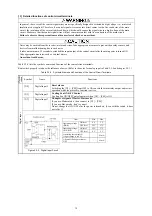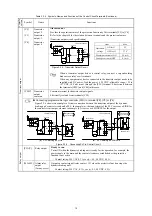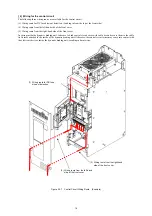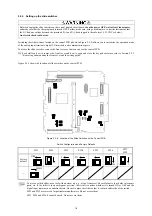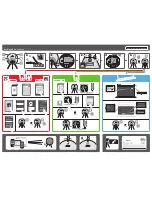
3
1.3 Precautions for Using dynamic breaking unit
This section provides precautions in introducing dynamic breaking units, e.g. precautions for installation environment, power
supply lines, wiring, and connection to peripheral equipment. Be sure to observe those precautions.
1.3.1 Installation environment
Install the dynamic breaking unit in an environment that satisfies the requirements listed in Table 1.3-1.
Table 1.3-1 Environmental Requirements
Item Specifications
Site location
Indoors
Ambient temperature
-10 to +40
C
Relative humidity
5 to 95% (No condensation)
Atmosphere The
dynamic breaking unit
must not be exposed to dust, direct sunlight, corrosive gases,
flammable gases, oil mist, vapor or water drops.
Pollution degree 2 (IEC60664-1)
(Note 1)
The atmosphere can contain a small amount of salt. (0.01 mg/cm
2
or less per year)
The
dynamic breaking unit
must not be subjected to sudden changes in temperature that will
cause condensation to form.
Altitude
Less than 1,000 m
If the altitude is 1,000 to 3,000 m, output current derating is required.
If the altitude is 2,001 to 3,000 m, the insulation level of the control circuits lowers from the
reinforced insulation to the basic insulation.
Vibration
Compliant to the standard IEC61800-2
Amplitude 0.3 mm: 2 to less than 9 Hz
1
m/s
2
: 9 to 200 Hz
Compliant to the standard IEC61800-5-1
Amplitude 0.075 mm: 10 to less than 57 Hz
1 G:
57 to 150 Hz
(Note 1)
Do not install the dynamic breaking unit in an environment where it may be exposed to lint, cotton waste or moist dust or dirt
which will clog the heat sink of the dynamic breaking unit. If the dynamic breaking unit is to be used in such an environment, install it in a
dustproof cabinet.
Summary of Contents for BUC S-69D
Page 8: ......





















